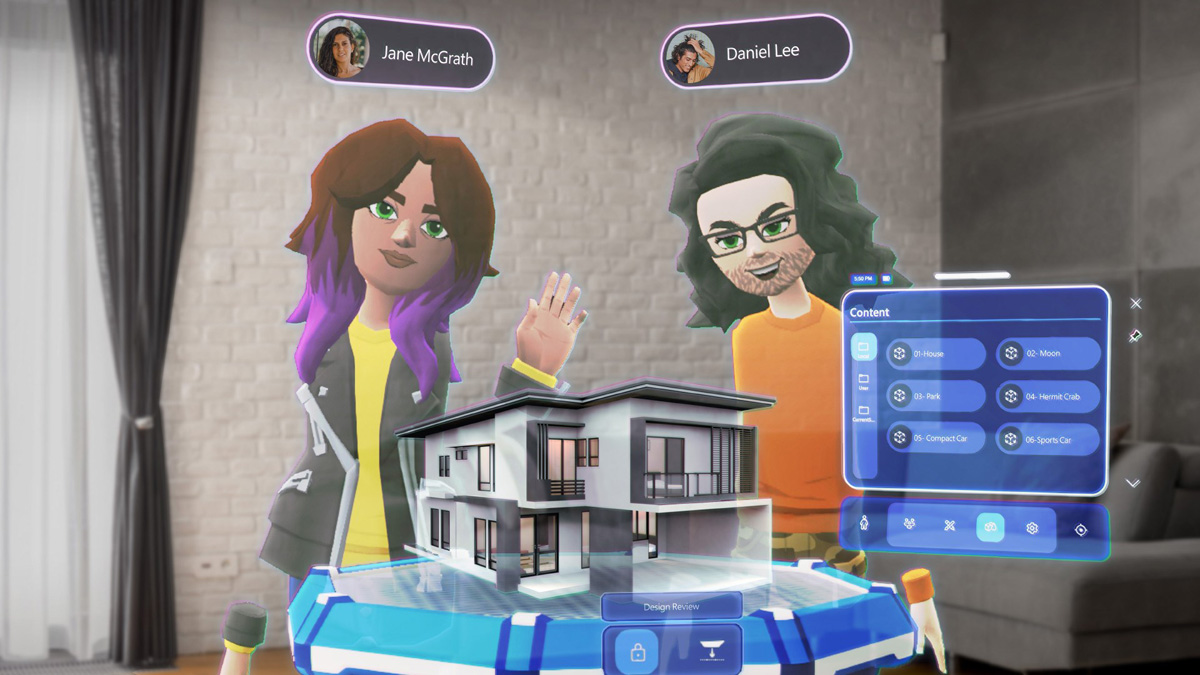In this space, which combines both virtual and augmented reality instances, users are able to participate through Microsoft’s own HoloLens 2 headset, VR gear, computers and even mobile devices. Mesh is powered by the company’s renown Azure cloud computing platform in order to ensure a swift and seamless experience, especially for generating multiple and varying 3D resources as well as user avatars during a session in real-time. Speaking of avatars, Mesh enables users to be represented by customisable 3D characters created from Microsoft’s AltSpaceVR social network, at least for now. It will eventually support “holoportation” avatars for Hololens 2 users, which allows them to appear as themselves during a session. Microsoft did not explain how this particular approach is achieved at this time. But judging by Hololens and Kinect lead developer Alex Kipman’s appearance during the Ignite keynote, it may involve a multi-camera setup and a green screen backdrop. In terms of visual prowess, there’s not much to write home about for Microsoft Mesh’s current incarnation – as its capabilities are still limited to what is achievable through existing technologies. That being said, the platform still stands out in terms of remote interactivity between multiple users and its accessibility for different devices, especially if you do not own a Hololens 2 or a VR headset.
Microsoft is clearly aiming to evolve the platform further, as seen in the promotional video of Mesh – showcasing various proof-of-concept elements such as more lifelike “holoportation” avatars and integration with certain medical devices. Hopefully in due time, our future collaborative sessions will be on par with the Iron Man and Star Wars-like holograms and experience that is visualised in the video. A preview version of Microsoft Mesh is now available through the company’s web store for those who wish to try out the platform for themselves. The same build of the platform has also been integrated in its AltSpaceVR social network for those using devices other than the Hololens 2. Microsoft added that Teams, Dynamics 365 and its other products will eventually include support for Mesh in the near future. (Source: Microsoft [1] [2] [3])
